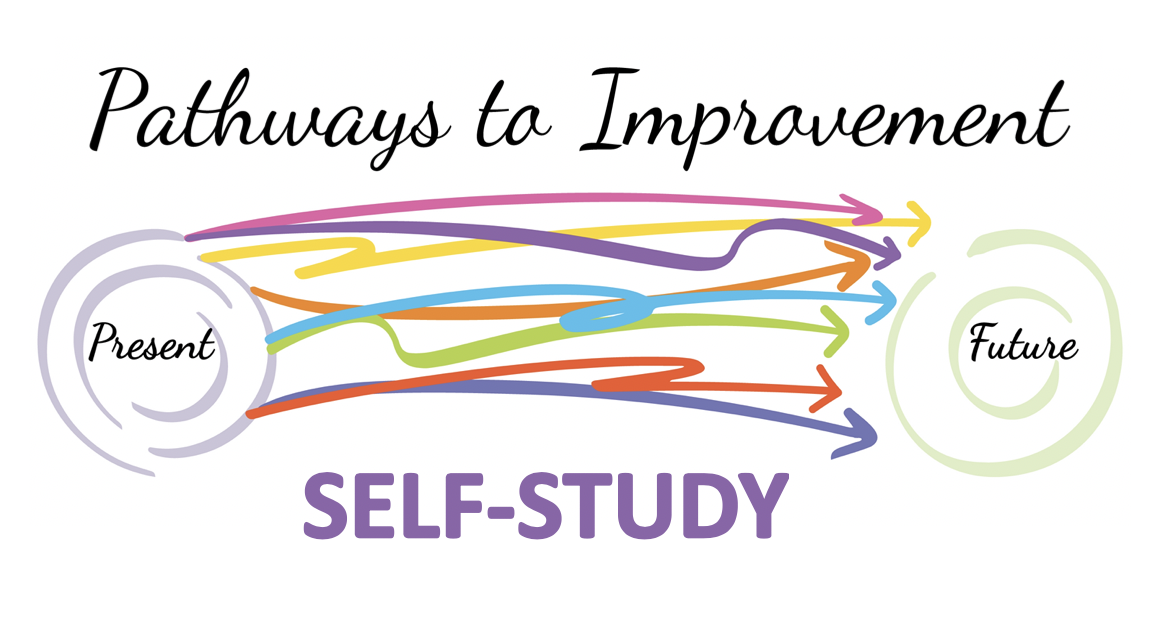6 Ways to Protect Yourself From Medical Gaslighting
Oct 09, 2025
Key Takeaways
Many people with complex chronic diseases—including myalgic encephalomyelitis/chronic fatigue syndrome (ME/CFS), fibromyalgia, long COVID, chronic pain, and environmental
sensitivities—report a shared and painful experience in health care: being dismissed, disbelieved, or blamed for their symptoms. Dr. Eleanor Stein calls this medical gaslighting, a
form of invalidation that occurs when health professionals minimize, question, or reinterpret a patient's lived experience rather than listening and investigating further.
What Is Medical Gaslighting?
Medical gaslighting happens when a clinician uses their professional authority to downplay or dismiss a patient's symptoms—often saying things like "You look fine," "It's just stress," or "Your tests are normal." This form of invalidation undermines the patient's confidence, damages the therapeutic relationship, and can block access to necessary care or disability supports.
Peer-reviewed research defines medical gaslighting as behaviors that call into question a person's authority to interpret their own experience (Fuss et al., 2024). Sociologist Jennifer
Sebring (2021) links it to the medical system's belief that scientific evidence outweighs lived experience—a belief that leaves patients with poorly understood illnesses particularly
vulnerable.
Four Root Causes of Medical Gaslighting
Dr. Stein identifies four systemic contributors:
- Societal bias: People from marginalized or underrepresented groups (women, racialized, neurodiverse, LGBTQ+, and disabled individuals) face more invalidation due to implicit stereotypes.
- Inadequate medical education: Few physicians are trained to recognize or manage conditions like ME/CFS or long COVID. In one study, 88% of British medical students reported receiving no teaching on ME/CFS (Reid & Muirhead, 2022).
- Medical service design: Specialization and time-based payment systems reward short, single-issue visits, leaving little space for multi-system illnesses. Many practitioners are unaware of existing clinical guidelines, such as the Bateman Horne Center Guide.
- Power imbalance: The traditional doctor-patient hierarchy makes it difficult for patients to challenge incorrect assumptions or request second opinions.
Dr. Stein offers six practical strategies patients can use to protect themselves and advocate effectively:
- Find the right expertise. Don't expect generalists to manage complex conditions—seek clinicians who understand ME/CFS, environmental sensitivities, or dysautonomia.
- Share clinical guidelines. Provide your doctor with credible, evidence-based summaries or handouts—Dr. Stein offers a downloadable PDF on her website.
- Hold practitioners accountable. Ask providers to document in your chart when they refuse tests or referrals and explain why.
- File a formal complaint if necessary. Report egregious behavior to medical licensing boards—though emotionally taxing, this can drive systemic change.
- Validate your own experience. Remember that disbelief from others doesn't invalidate your symptoms or reality.
- Find community support. Join positive, science-informed, and empowering peer groups, such as Dr. Stein's Facebook community or her biweekly live program, Live! with Dr.
Stein.
Why This Matters
Being disbelieved is not just emotionally painful—it has real consequences for access to diagnosis, care, and social support. Understanding the roots of gaslighting and learning to respond constructively can help patients reclaim agency and dignity while navigating the medical system.
The Full Blog
Over my decades in practice, I have heard innumerable, heart-wrenching stories from patients who have gone to doctors and other health care professionals seeking help for concerning health symptoms only to be dismissed and invalidated. Here are some examples of what I have been told.
- People are dismissed outright, like the physician who says, "I don't believe in fibromyalgia. It doesn't exist."
- The patient's testimony is minimized or normalized, as in "You look fine" or "I get tired too."
- A diagnosis of "medically unexplained symptoms" is given. This is not really a diagnosis but rather code for "I don't believe you."
- The professional's knowledge is used to invalidate the patient's lived experience. Examples include "Your test results are normal; I don't see anything wrong."
- The patient is implicitly blamed for their symptoms with comments like, "Perhaps you are working too hard, not exercising enough, not eating properly, or otherwise doing something wrong."
- The problem is incorrectly attributed to an unrelated state or condition: "Perhaps you're old, stressed, in menopause," or "it's due to your previous diagnosis of sleep apnea, thyroid condition, cancer, etc." Fill in the blank here with a pre-existing condition that has been treated, is stable and is unrelated to your complex chronic disease symptoms.
- If the patient expresses frustration, sadness, or any strong emotion, the professional may suggest they are depressed or have a mental illness, rather than acknowledging the emotional toll of living with a disabling, stigmatized disease for which there are no good treatments.
Direct confrontation doesn't work. The practitioner will get defensive and deny they are gaslighting you, and if you become upset with the professional's conclusion, this is taken as further evidence of emotional imbalance.
It wouldn't be so bad if being disbelieved were not harmful. Primary health professionals (PHP)are the gatekeepers to the medical system. If your PHP doesn't believe or understand you, access to needed health care and social supports may not be available. And this can be harmful.

What Is Medical Gaslighting?
This invalidation is not new, but it has a new name, "medical gaslighting." A 2018 article in The Atlantic defined medical gaslighting as "when health care professionals downplay or blow off symptoms." A recent peer-reviewed article suggests the following definition: "behaviors which invalidate or call into question the authority of another person to judge their own lived experience" (Fuss, Jagielski, & Taft, 2024). Basically, with gaslighting, people are being told that their lived experience and/or their interpretation of it is incorrect.
Who is most likely to experience medical gaslighting?
I've spent some time reflecting on why this invalidation by health care professionals is so common. As a physician and with many friends and colleagues who are health care professionals, I know that for the vast majority, their hearts are in the right place. They chose a career in medicine because they want to help people, not leave them feeling disbelieved, abandoned and hopeless. Yet many end up being part of the problem?
Jennifer Sebring, from the University of Manitoba, points out that when a problem is widespread, it is likely the result of a larger societal issue rather than being due to a few "bad apples." In the case of medical gaslighting, Sebring blames the commonly held belief that "medicine and science are the ultimate source of objective, indisputable knowledge and truth" and are more valid than lived experience (Sebring, 2021). This incorrect belief gives all the power to the professionals and disempowers patients. The prioritization of research-based knowledge makes it hard to argue if one feels the professional has suggested the wrong diagnosis or management plan. How can an ordinary civilian dispute so-called scientific facts?

4 Root Causes of Gaslighting
- societal beliefs and biases
- inadequate medical education
- delivery of inappropriate medical services
- power imbalance in the doctor-patient relationship
I will explain each of these further so you can gain a better understanding of the complexity of the issue. At the risk of repeating myself, I'm not excusing practitioners who don't listen to or believe their patients; rather, I'm trying to understand why it happens. Understanding is the first step towards finding solutions.
1. Societal Factors
Social stereotypes: Invalidation is more common among patients from groups underrepresented in the mainstream medicine power structure. This includes women, racialized groups, neurodiverse, LGBTQ+ and people with visible and invisible disabilities. This is due to implicit biases. Unconscious stereotypes are widely held in society, including by health care practitioners.
Societal values of success: Our society values observable success. People who are stronger, run faster, jump higher and achieve financial success are lauded—they get awards. People who don't contribute to society in big, bold, visible ways are often ignored and undervalued. The daily struggle of people with chronic diseases to survive and thrive is typically undervalued.
Lack of gold standard tests: Conditions without clear biomedical explanations (e.g., ME/CFS, long COVID, fibromyalgia, chronic pain, environmental sensitivities and others) are less valued and more stigmatized than diseases with gold standard tests, things like heart disease and cancer. Many believe that if we can't measure something, it doesn't exist or couldn't be that serious. This is incorrect and harms many patients.
2. Medical Education
Insufficient knowledge: There are many studies documenting that the average physician lacks adequate knowledge about ME/CFS and other complex chronic diseases and that they have dismissive attitudes towards them. I wrote a paper about this 24 years ago (Stein, 2001). And it doesn't seem to be getting better. A 2022 survey by Victoria Reid and Nina Muirhead of Cardiff University found that 35% of British medical students surveyed did not know what ME/CFS was, 88% of students had not been taught about it, and none of the students had been examined on the topic (Reid & Muirhead, 2022). I can tell you from experience that if something isn't on the exam, it doesn't get students' attention.
Lack of a template: Clinical practice relies on pattern recognition. When a clinician hears a patient's story, they try to match it to the information they have been taught. Once they find a match, they turn to accepted practice for that condition. When doctors haven't been taught about ME or long COVID, they can't make a match. Some practitioners may doubt the patient's story because it doesn't fit what they have learned. This can spell disaster for patients.
Pressure to be right: Health care professionals and physicians in particular are taught that they need to have all the answers, to "never miss a diagnosis." This makes it very difficult for doctors to admit when they don't know what's going on. Rather than admit they don't know, they often conclude the problem lies with the patient.
3. Medical Service Delivery
Specialization: The average ME patient has seen >5 medical specialists before they are correctly diagnosed. Medicine is taught and practiced in specialties that artificially divide the body into organ systems or parts. When people with complex chronic conditions are sent to a specialist, the specialist typically "rules out" problems within their narrow specialty and fails to consider the big picture. None of ME, FM, environmental sensitivities or long COVID has a medical specialty home. No specialty considers it their job to learn about or treat us. We are orphans.
Financial constraints: Whether you live in a country with publicly or privately funded health care, there are financial constraints. Physicians are typically paid on a fee-for-service model, and a particular service, such as an office visit, is paid at a certain rate regardless of how long it takes. The standard rate doesn't take into account patients who have multiple complex symptoms. If professionals take the time to ask about the big picture, they won't earn enough to survive. To protect from this outcome, doctors in my city post signs in their waiting rooms saying, "Please keep your visit to the discussion of a single complaint."
Lack of practice guidelines: Physicians are taught to follow accepted evidence-based care guides. For some diseases, these are taught in training and are easily accessible. Most physicians are unaware of the accepted practice guidelines for ME/CFS and complex chronic diseases (e.g., the Bateman Horne Center Clinical Guide).
College/Board sanctions: Practitioners who are knowledgeable about complex chronic diseases run the risk of being sanctioned by their medical college or board because the mainstream is unaware of the supporting research. Several of my close colleagues have been persecuted by their Canadian provincial college for practicing good medicine.
4. Power Imbalance in the Practitioner-Patient Relationship
Patients seek medical care when they are unwell, scared and vulnerable. They have been socialized to believe that the practitioner has access to needed information, strategies and resources. This belief (whether true or not) creates an inherent imbalance in power in every practitioner-patient relationship. This is true even if outside the relationship, the patient is part of a mainstream, powerful group or has personal power by virtue of wealth, position or status.

Solutions
How Can You Protect Yourself From Medical Gaslighting?
1. Don't hire a carpenter to fix your toilet.
One of the best pieces of advice I have heard comes from Dr. Efrat LaMandre, who was a guest on the Dr. Eleanor Stein Podcast. Click here to listen to the full episode. She explained that most conventionally trained practitioners don't learn about complex chronic diseases. Asking them to help you with environmental sensitivities or mast cell activation syndrome is like asking a carpenter to help fix your leaking toilet. The carpenter doesn't have the training or the tools to help you. They are likely to tell you they can't find the source of the problem, and even after working on it for hours, chances are your toilet will still be running.
For those who are able to do so, try to find practitioners who are plumbers—who know how to assess, diagnose and treat complex chronic diseases. I understand that for people living on low incomes and in remote locations, this may not be possible.
2. Share accepted clinical guides with your health care team.
Give your practitioners the information they need to help you at their fingertips. To this end, I have created a 1-page PDF document for health care professionals with links to the most current and widely accepted guidelines. You can access the PDF partway down my home page or by clicking here. Practitioners are busy. They will appreciate your showing them the part of the guide that applies to you, so they don't have to read the entire document.
3. Hold your practitioners accountable.
For example, if a doctor refuses to run a test, support your disability request or make a needed referral, you could ask them to record the request in your medical chart along with the reason for turning you down. They may rethink their reply, knowing you will hold them accountable.
4. Make a complaint to the medical board.
If gaslighting is particularly egregious, you may consider placing a complaint with the college or board that registers and polices the practitioner in question. I consider this a last resort because the process of lodging a complaint is not easy, and the system may be biased in favor of the practitioners. Nevertheless, if several complaints come in about an individual practitioner or problem, it may encourage change.
5. Remember, others' opinions may not be correct.
If you are gaslit by a health care professional, remember their beliefs or behavior don't change the validity of your experience. They can say what they want and even deny you access to tests or services, but they can't steal your dignity or self-confidence. If you are feeling shaky, talk to people who believe and support you.
6. Find support.
Moving ahead towards your goal of better health is easier with support. Find others with similar health challenges and pool your knowledge and resources. Look for a group with a positive outlook, like my private Facebook community. Join me every two weeks for Live! with Dr. Stein to learn practical ways to improve your health and strategies you can implement yourself, without relying on health care practitioners.
To see the Video Tip corresponding to this blog, click here.
If you liked this blog, you may also like the following similar blogs:
https://www.eleanorsteinmd.ca/blog/feeling-stressed-by-covid-19
https://www.eleanorsteinmd.ca/blog/living-life-in-disease-guest-blog-by-ari-cubangbang
https://www.eleanorsteinmd.ca/blog/me-cfs-recovery-story
https://www.eleanorsteinmd.ca/blog/can-mindset-improve-your-health
To learn more about Pathways to Improvement, click on the image below!
References
Fuss, A., Jagielski, C. H., & Taft, T. (2024). We didn't start the fire…or did we?-a narrative review of medical gaslighting and introduction to medical invalidation. Transl Gastroenterol Hepatol, 9, 73. doi:10.21037/tgh-24-26
Reid, V. A., & Muirhead, N. (2022). Investigating undergraduate medical education on myalgic encephalomyelitis/chronic fatigue syndrome. The British Student Doctor Journal, 6(1), 35–40. doi:10.18573/bsdj.308
Sebring, J. C. H. (2021). Towards a sociological understanding of medical gaslighting in western health care. Sociology of Health & Illness, 43(9), 1951–1964. doi:https://dx.doi.org/10.1111/1467-9566.13367
Stein, E. (2001). Chronic fatigue syndrome: Overcoming the attitudinal impasse. Journal of Chronic Fatigue Syndrome, 8(3/4), 53–61.
 Dr. Eleanor Stein is a retired physician and psychiatrist who now dedicates her career to empowering people with complex chronic conditions—such as myalgic encephalomyelitis/chronic fatigue syndrome (ME/CFS), fibromyalgia, environmental sensitivities, long COVID and chronic pain—to reclaim their lives through science-based education using self-management, circadian biology, neuroplasticity, hormesis and quantum biology.
Dr. Eleanor Stein is a retired physician and psychiatrist who now dedicates her career to empowering people with complex chronic conditions—such as myalgic encephalomyelitis/chronic fatigue syndrome (ME/CFS), fibromyalgia, environmental sensitivities, long COVID and chronic pain—to reclaim their lives through science-based education using self-management, circadian biology, neuroplasticity, hormesis and quantum biology.
With over 35 years of clinical practice in Calgary, Alberta, Canada, along with research and decades of lived experience navigating ME/CFS, fibromyalgia, and multiple chemical sensitivity (MCS), Dr. Stein uniquely blends rigorous medical insight with personal resilience. Her online resource platform offers live group courses, self-study programs, webinars, blogs and a podcast to support patients and health care professionals worldwide.


